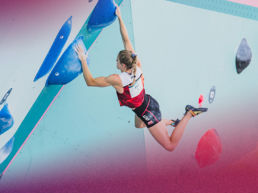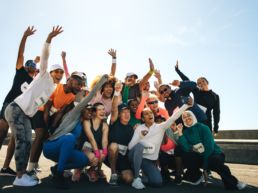It’s been over a month since the release of #SportOnSocial – our annual Report that ranks all 35 Olympic International Federations on their social media performance.
This year’s Report has been our most extensive yet. Using the information gathered, we’ve looked at various approaches and trends that result in successful digital strategies.
We were fortunate to be able to discuss approaches to social media with Mark Pickering (IJF Media Director) and Nikki Symmons (former FIH Digital Manager). Both their Federations did remarkably well in this year’s Report.
👍 Third highest Engagements per Post 👍
🎥 Fourth highest Views per Video 🎥@IntJudoFed excelled across every social media platform 🔥Download #SportOnSocial now 👉 https://t.co/QUwe6OUHmb pic.twitter.com/DdDEfrgz6b
— Redtorch (@REDTORCHltd) April 3, 2019
🙌 @FIH_Hockey climbed 17 places to No. 2 on YouTube, primarily due to the #HWC2018 🏆 The tournament period accounted for 48% of 101.5k new subscribers and 28% of total video views (3.3m) 🎥
🔗Download #SportOnSocial for more insights 👉 https://t.co/JhJNObq6zT pic.twitter.com/Aa1Cq2QcCU
— Redtorch (@REDTORCHltd) April 3, 2019
Common elements that helped generate this success included understanding their fans, maximising World Championships, and working with athletes.
Understanding fans to increase engagement
A lot of time and effort are invested in all social media surrounding World Championships. Communications are key, not just in the moment but also in the years that precede and succeed the events.
Mark highlights the importance of understanding your fan base to encourage engagement with events.
We regularly ask fans what they want to see from our social media. We’re fortunate enough to have such a vocal fan base who provide us with invaluable feedback.
Consistent audience analysis makes communications with target audiences more relevant and thus increases the chance of grabbing attention.
World Championship campaigns
World Championship events are the climax of many sporting calendars. It is crucial, therefore, to optimise content and coverage at these times. As well as acting as a catalyst to grow awareness and experience of the sport, successful approaches to both digital and social media coverage can work wonders for rights holders.
ISU ranked No. 2 on Twitter with its @ISU_Figure page experiencing huge growth and engagement during the 2018 World Championships and 2018-19 Grand Prix Final ❄️🙌
🔗Download #SportOnSocial for more insights 👉 https://t.co/5uB08ZB0c9 pic.twitter.com/FDn5RuoTJW
— Redtorch (@REDTORCHltd) April 3, 2019
@IIHFHockey climbed 2 places on Facebook as a result of the 2018 IIHF World Championship in Denmark 👏
🔗Download #SportOnSocial for more insights 👉 https://t.co/6mzU6JoFj7 pic.twitter.com/nZpHlvKwJd
— Redtorch (@REDTORCHltd) April 2, 2019
Of course, significant campaign planning and preparation must go in to these events for them to succeed. Nikki recognises that such developments do not happen by magic.
The success of the Hockey World Cups in 2018 was due to many aspects of how we marketed the events. It wasn’t by magic … but started 4–5 years ago when we deployed a new logic and planning for all our events following the Hockey Revolution. One of our major initiatives was “joined-up global marketing”.
One thing that cannot be overlooked is the value of a campaign name and hashtag. For Nikki, it did more than simply revolutionise the 2018 Hockey World Cups – its implementation was fundamental to the campaign.
For me it was a game changer for our events, how they are perceived and how successful they are … We started to have a consistent identity working closely with hosts, national associations, participating teams, and athletes of all our events.
Disappointed & heartbroken – not what we came for after months of preparation but we will come back stronger. TQ Bhubaneswar! It was ur cheer that kept us weaving big, motivated us to give our best shot on the field. HI Men’s team sincerely TQ for being our pillar 🙏🏼 #HWC2018 pic.twitter.com/8qjdubztvu
— Manpreet Singh (@manpreetpawar07) December 17, 2018
The hard work has seriously paid off … The hashtag was everywhere, in venues, behind the players in the dugouts, on the streets, the backs of the umpires’ shirts, you name it – we had it branded with the hashtag.
The result? Millions of people played the same game and used the same hashtag #HWC2018, from Bollywood Stars to fans in the venue and our global audience!
It was an epic event for Odisha and India. The organisers certainly deserve kudos. The thriller final match was icing on the cake. #HWC2018
— *Ajatamitra- Within Laxman Rekha. (@scdas64) December 17, 2018
Athletes
IFs are in a privileged position with world-class athletes at their fingertips; making full use of athlete networks should be fundamental to IF digital strategy.
Mark also highlights the significance of the hashtag, together with the importance of athlete engagement.
We employ every feature to its fullest: using our hashtag and mentioning athletes in stories and posts, polls, calls to action, as well as tagging a location, the athletes, the federations, the partners. We are quick to embrace new features, too.
Every IF needs to have an athlete engagement strategy, or at least be building relationships with athletes to help develop their profiles and leverage their audiences in return.
Athletes create stories that interest fans. It is the role of IFs to embrace this position and work closely with their athletes.
Quality not quantity
Mark makes a valuable point about social media content.
Everything we put on social media is based on quality rather than quantity … sharing the best photos and videos and telling the most engaging stories.
📰 Judo's most memorable moments in 2018
🤜 https://t.co/x6oi43tk9z pic.twitter.com/nsWrhiuTK3
— Judo (@Judo) December 29, 2018
Judo is an extremely dynamic and photogenic sport with a unique moral code. We want to show only the very best examples to reflect our brand identity.
COMING UP NEXT: World Judo Masters 2018.
Guangzhou 🇨🇳#JudoMasters2018 pic.twitter.com/01aoXShMpq
— Judo (@Judo) November 29, 2018
For us at REDTORCH, it’s brilliant to see more niche sports excelling, and spreading the positive experiences and values of sport to millions of people worldwide.
Download the full #SportOnSocial Report here.




